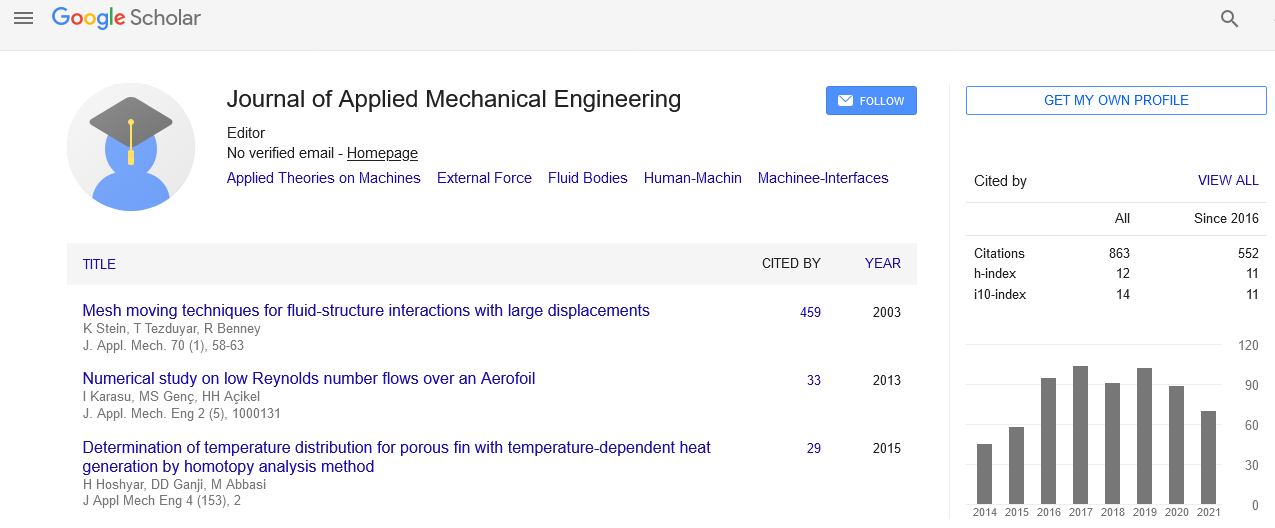Indexed In
- Genamics JournalSeek
- JournalTOCs
- CiteFactor
- RefSeek
- Hamdard University
- EBSCO A-Z
- OCLC- WorldCat
- Publons
- Google Scholar
Useful Links
Share This Page
Journal Flyer

Open Access Journals
- Agri and Aquaculture
- Biochemistry
- Bioinformatics & Systems Biology
- Business & Management
- Chemistry
- Clinical Sciences
- Engineering
- Food & Nutrition
- General Science
- Genetics & Molecular Biology
- Immunology & Microbiology
- Medical Sciences
- Neuroscience & Psychology
- Nursing & Health Care
- Pharmaceutical Sciences
Heat transfer coefficient characterization in the thermal and hydrodynamic boundary layers of flowing fluids and evaporating thin-films
4th International Conference and Exhibition on Mechanical & Aerospace Engineering
October 03-04, 2016 Orlando, USA
Shawn A Putnam
University of Central Florida, USA
Scientific Tracks Abstracts: J Appl Mech Eng
Abstract:
Transient heat fluxes in cutting-edge computing systems, electro-magnetic switches and diode-pumped lasers can exceed 50 MW/ m2, which is nearly the heat flux radiated by the sun. To manage extreme thermal loads, the State-of-the-Art is to boil and evaporate liquid coolants on micro- and nano-structured heat sinks. However, modern cooling techniques cannot manage extreme heat fluxes under transient conditions. Thermo-fluid transients due to on/off device operation or system exposure to an extreme environment result in highly unstable thermo-fluid behavior, ultimately placing a liquid-cooled device in danger of catastrophic failure via thermal runaway i.e., a rapid, uncontrolled increase in device temperature. This talk will cover our application of optical pumpprobe diagnostics to characterize the local, transient heat transfer coefficient (HTC) in confined geometries: (i) HTC in a developing thermal boundary layer in a microchannel and (ii) HTC in evaporating thin-films. We focus on the heat transfer coefficient because it is the most important thermo-fluid parameter to understand in active, two-phase thermal management applications. Specifically, we use a differential form of the anisotropic Time-Domain Thermo-reflectance (TDTR) technique to measure the HTC as a function of fluid flow rate (or Reynolds number, Re) and evaporating thin-film thickness. For example, studies with flowing fluids in microchannels consists of single-phase, degassed water flowing in a rectangular microchannel (hydraulic diameter: Dh= 480 μm with local spot heating by the pump TDTR laser beam. Relative to the HTC measured with non-flowing (static) fluids, we find a 30% in the HTC for single-phase water flowing at Re~1800.
Biography :
Shawn A Putnam is working as an Assistant Professor in the University of Central Florida, USA. His research interest includes: Thermal management; Magneto-optics; Advanced energy storage and conversion; Bio-molecular interfaces; Thermodynamics and Materials manufacturing.
Email: Shawn.Putnam@ucf.edu

